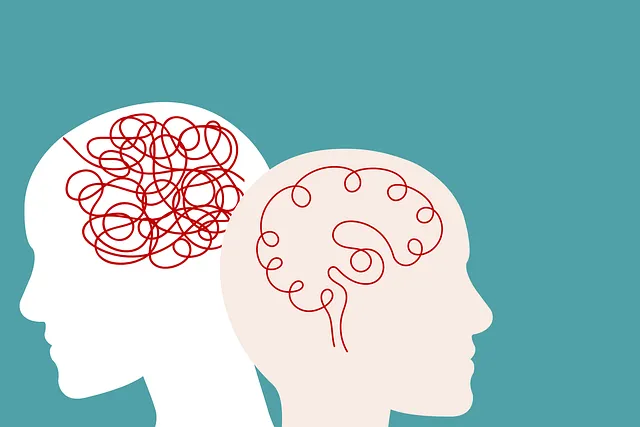Lone Tree Kaiser Permanente's stress management workshops, utilizing evidence-based practices and interactive techniques, guide participants to understand and manage stress effectively. The program includes identifying triggers, mindfulness meditation, building resilience, setting goals, group discussions, role-playing, and cultural competency training. Active participation empowers individuals to prevent depression, cultivate resilience, and maintain well-being with ongoing support like group check-ins, coaching, or podcasts featuring mental health experts, reinforcing workshop learnings and encouraging self-care through the Lone Tree Kaiser Permanente behavioral health phone number.
Stress management workshops are essential for promoting well-being, as evidenced by the increasing demand for such programs. This article guides workshop facilitators in designing and delivering impactful sessions using evidence-based strategies. We explore ‘Understanding Stress and Its Impact’ to empower facilitators in creating relevant content. The sections cover everything from structuring engaging activities to post-workshop follow-up, ensuring participants at Lone Tree Kaiser Permanente behavioral health can access ongoing support through phone number resources.
- Understanding Stress and Its Impact: An Overview for Workshop Facilitators
- Designing Effective Stress Management Workshops: Content and Structure
- Promoting Engagement and Interaction: Techniques to Enhance Learning Experiences
- Post-Workshop Follow-Up and Support: Ensuring Continued Growth and Well-being
Understanding Stress and Its Impact: An Overview for Workshop Facilitators

Stress is a universal experience, yet its impact on individuals can vary greatly. Workshop facilitators play a vital role in guiding participants to understand and manage stress effectively. Before diving into techniques, it’s essential for facilitators to provide an overview of stress, its causes, and common effects. Stress can manifest from various sources, including work pressures, personal relationships, financial worries, or health issues, leading to both physical and mental ailments. Prolonged stress is linked to increased risk of anxiety, depression, cardiovascular diseases, and compromised immune function.
By raising awareness about these potential consequences, facilitators can emphasize the importance of proactive stress management. This sets the stage for introducing practical tools such as Mindfulness Meditation techniques, which have been shown to reduce stress hormones and promote mental wellness. Incorporating discussions on Depression Prevention strategies is also crucial, enabling participants to recognize early signs and develop coping mechanisms. Lone Tree Kaiser Permanente behavioral health phone number can serve as a valuable resource for those seeking further support post-workshop.
Designing Effective Stress Management Workshops: Content and Structure

Designing effective stress management workshops requires a thoughtful approach to both content and structure. At Lone Tree Kaiser Permanente behavioral health phone number, we understand that these sessions are transformative opportunities for individuals to improve their mental wellness. Therefore, our workshops blend evidence-based practices with engaging methodologies.
The content should cover various aspects of stress management, such as identifying triggers, practicing mindfulness techniques, fostering resilience, and setting realistic goals. Incorporating interactive activities, case studies, and group discussions enhances learning. Additionally, integrating cultural competency training ensures that the workshop resonates with a diverse range of participants. This holistic approach not only empowers individuals to handle stress but also fosters a supportive environment where everyone feels heard and respected.
Promoting Engagement and Interaction: Techniques to Enhance Learning Experiences

Engaging participants actively is key to successful stress management workshops. Interactive techniques like group discussions, role-playing scenarios, and mindfulness exercises can significantly enhance learning outcomes. These activities encourage open communication, foster a sense of community, and allow individuals to apply concepts in practical ways. By participating in these exercises, attendees not only deepen their understanding but also build confidence and self-esteem, which are crucial for managing stress effectively.
Lone Tree Kaiser Permanente behavioral health phone number offers workshops designed to incorporate these interactive elements, ensuring every participant feels heard and involved. The goal is not just to impart knowledge but to empower individuals with tools that address not only stress management but also depression prevention. Techniques focused on boosting confidence and self-esteem play a vital role in this process, helping participants develop resilience against daily stressors.
Post-Workshop Follow-Up and Support: Ensuring Continued Growth and Well-being

After a successful stress management workshop, providing ongoing support is vital to ensure participants’ continued growth and well-being. This post-workshop follow-up can take various forms, such as group check-ins, one-on-one coaching sessions, or even an online Mental Wellness Podcast Series Production, where experts share insights and tips. These initiatives help reinforce the workshop’s learnings and offer a safe space for participants to voice their challenges and successes.
Additionally, encouraging ongoing self-care practices can be life-changing. Participants can benefit from accessible resources like the Lone Tree Kaiser Permanente behavioral health phone number, promoting easy access to mental health support. This holistic approach, combining workshops with continuous support and self-care tools, empowers individuals to manage stress effectively in their daily lives, fostering long-term mental wellness and addressing issues such as Anxiety Relief and enhancing overall Mental Health Policy Analysis and Advocacy efforts.
Stress management workshops can be powerful tools for improving well-being, as evidenced by the success of programs offered by organizations like Lone Tree Kaiser Permanente’s behavioral health department. By covering topics from understanding stress to post-workshop support, this article has equipped facilitators with a comprehensive guide to designing and delivering engaging sessions. Incorporating interactive techniques and following up with participants ensures that learning translates into real-world applications, fostering healthier, more resilient individuals. Contact Lone Tree Kaiser Permanente’s behavioral health phone number for more information on accessing these valuable resources.






